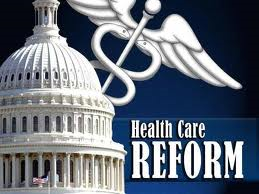Obamacare’s Medicaid expansion program and subsidies have made major health insurance companies extremely profitable, according to a White House economic report.
The White House Council of Economic Advisors (CEA) report that insurers’ financial health, a measure the group says is reflected in their stock prices, improved markedly after Obamacare took full effect Jan. 1, 2014. The economists find insurers’ stock prices soared 272 percent from Jan. 2014 to 2018, outperforming the S&P 500 by 106 percent over the period.
Insurers took time to adjust to Obamacare rules and regulations. While the legislation passed in 2010, it faced a number of legal and congressional challe nges that delayed its full implementation for 4 years. During that timeframe, insurance providers found it troubling to peg a price point for coverage plans after Obamacare expanded essential health benefits (ESBs) and required providers to follow other stabilization regulations, like Obamacare’s risk corridor program. Some providers were not able to withstand the new regulations and withdrew from the market. Others weathered the changes, gobbled up smaller health insurers and consolidated to stay competitive. Consolidation wasn’t relegated to insurance providers. Hospital systems, pharmacy benefit managers and physician groups had to consolidate to survive the new Obamacare marketplace.
nges that delayed its full implementation for 4 years. During that timeframe, insurance providers found it troubling to peg a price point for coverage plans after Obamacare expanded essential health benefits (ESBs) and required providers to follow other stabilization regulations, like Obamacare’s risk corridor program. Some providers were not able to withstand the new regulations and withdrew from the market. Others weathered the changes, gobbled up smaller health insurers and consolidated to stay competitive. Consolidation wasn’t relegated to insurance providers. Hospital systems, pharmacy benefit managers and physician groups had to consolidate to survive the new Obamacare marketplace.
Insurers that stayed and participated in the exchanges have now found it a profitable enterprise, the report states.
The report’s findings come in stark contrast to what major insurance providers on the state Obamacare exchanges have said for years. Every year since Obamacare’s full implementation–most recently during the numerous 2017 GOP repeal and replace attempts–major insurance companies, like Blue Cross Blue Shield, Aetna and UnitedHealth, have threatened to drop out, or dropped out, of state exchanges because they fear it will no longer be possible to make a profit.
When they dropped out or threatened to do so, insurance companies main concern was whether or not the federal government would continue to pay out Obamacare subsidies, known as cost-sharing reductions (CSRs). CSRs remained a critical point of debate for House and Senate lawmakers heading into Wednesday’s expected unveiling of a must-pass spending bill to keep the government funded through Sept. 30. The subsidies are not expected to be in the final version of the spending bill, but Democrats, along with a handful of GOP lawmakers, consider them vital stabilizing the Obamacare marketplace.
The White House report may not help their case in securing CSR funding.
